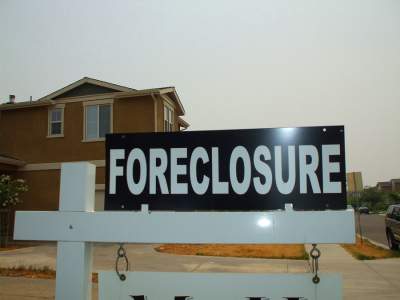Foreclosure Defense
|
If you have been served with foreclosure paperwork you are likely beyond frustrated trying to deal with your bank. At Witt Law Firm, we are here to help explain all your options. Many clients simply wish to pay us $750 to attend the foreclosure hearing, review the Court file, and request a 60 day continuance. North Carolina Statute Section 45-21.16C (see below) gives the Clerk of Court power to grant up to 60 day continuance for a principal residence where good cause exists.
Even if the Clerk of Court is not willing to postpone the hearing he or she may be willing to push back the sale date. This may provide additional time for you to reapply for a loan modification or consider other foreclosure alternatives. Often homeowners are too busy to attend the hearing or fail to notice the hearing date as it is usually hidden in the paperwork. Furthermore at the foreclosure hearing you have an opportunity to challenge the lenders right to foreclose. |
Foreclosure Alternatives
- Loan modification.
- Short Sale.
- Deed in Lieu.
- Contest bank's validity to foreclosure.
- North Carolina Foreclosure Prevention Fund.
- Contact the Neighborhood Assistance Corporation of America "NACA" for assistance.
- Request a continuance at the hearing date.
- Bankruptcy to delay sale or save your house.
- Cash for keys.
What must the Trustee prove at the Foreclosure hearing?
- A valid debt.
- Default on the debt.
- The right to foreclose in the Loan Documents.
- Proper notice of the foreclosure.
N.C.G.S. § 45-21.16C. Opportunity for parties to resolve foreclosure of owner-occupied residential property.
(a) At the commencement of the hearing, the clerk shall inquire as to whether the debtor occupies the real property at issue as his or her principal residence. If it appears that the debtor does currently occupy the property as a principal residence, the clerk shall further inquire as to the efforts the mortgagee, trustee, or loan servicer has made to communicate with the debtor and to attempt to resolve the matter voluntarily before the foreclosure proceeding. The clerk's inquiry shall not be required if the mortgagee or trustee has submitted, at or before the hearing, an affidavit briefly describing any efforts that have been made to resolve the default with the debtor and the results of any such efforts
(b) The clerk shall order the hearing continued if the clerk finds that there is good cause to believe that additional time or additional measures have a reasonable likelihood of resolving the delinquency without foreclosure. In determining whether to continue the hearing, the clerk may consider (i) whether the mortgagee, trustee, or loan servicer has offered the debtor an opportunity to resolve the foreclosure through forbearance, loan modification, or other commonly accepted resolution plan appropriate under the circumstances, (ii) whether the mortgagee, trustee, or loan servicer has engaged in actual responsive communication with the debtor, including telephone conferences or in-person meetings with the debtor or other actual two-party communications, (iii) whether the debtor has indicated that he or she has the intent and ability to resolve the delinquency by making future payments under a foreclosure resolution plan, and (iv) whether the initiation or continuance of good faith voluntary resolution efforts between the parties may resolve the matter without a foreclosure sale. Where good cause exists to continue the hearing, the clerk shall order the hearing continued to a date and time certain not more than 60 days from the date scheduled for the original hearing. Nothing in this part shall limit the authority of the clerk to continue a hearing for other good cause shown. (2009-573, s. 3.)
(b) The clerk shall order the hearing continued if the clerk finds that there is good cause to believe that additional time or additional measures have a reasonable likelihood of resolving the delinquency without foreclosure. In determining whether to continue the hearing, the clerk may consider (i) whether the mortgagee, trustee, or loan servicer has offered the debtor an opportunity to resolve the foreclosure through forbearance, loan modification, or other commonly accepted resolution plan appropriate under the circumstances, (ii) whether the mortgagee, trustee, or loan servicer has engaged in actual responsive communication with the debtor, including telephone conferences or in-person meetings with the debtor or other actual two-party communications, (iii) whether the debtor has indicated that he or she has the intent and ability to resolve the delinquency by making future payments under a foreclosure resolution plan, and (iv) whether the initiation or continuance of good faith voluntary resolution efforts between the parties may resolve the matter without a foreclosure sale. Where good cause exists to continue the hearing, the clerk shall order the hearing continued to a date and time certain not more than 60 days from the date scheduled for the original hearing. Nothing in this part shall limit the authority of the clerk to continue a hearing for other good cause shown. (2009-573, s. 3.)


